1. Rest Stops Without Permission
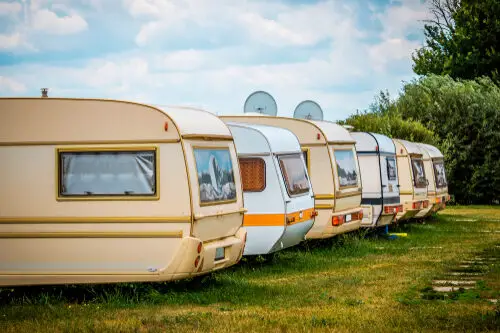
It might seem like a no-brainer to pull into a rest stop for the night, but not all of them allow overnight stays. Some states strictly enforce time limits, and you could wake up to a ticket instead of a peaceful morning. Even if the sign doesn’t explicitly ban overnight parking, local authorities might still consider it illegal. RV owners often underestimate how closely these areas are monitored.
Even when overnight stays are technically allowed, rest stops are rarely comfortable. They often have minimal amenities, like no showers or secure trash disposal. Noise from highway traffic can make sleeping nearly impossible. Plus, large rigs can be hard to maneuver into tight rest stop spaces, increasing the stress of parking.
2. Walmart Parking Lots

Walmart parking lots seem like a convenient overnight solution, but it’s not always a guaranteed safe haven. While some stores welcome RVs, others strictly forbid overnight parking and will have you towed. Store managers may give mixed messages depending on staffing or local ordinances. Relying on a single corporate policy can backfire quickly.
Even when a store allows it, the lot often isn’t designed for long-term stays. Traffic flow and delivery trucks can make it noisy and chaotic. The lighting may be harsh, making it difficult to relax or sleep. And don’t forget the lack of hookups, meaning you can’t refill water or dump waste easily.
3. Gas Stations
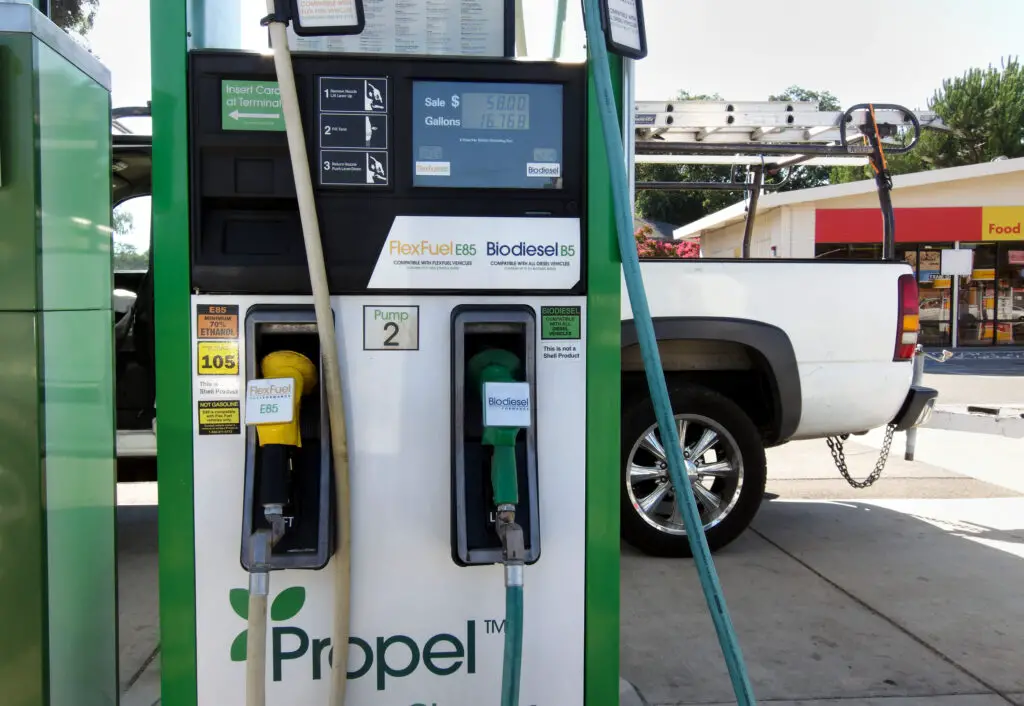
Gas stations are tempting because they’re everywhere, and you can fuel up while parking. But many stations don’t permit overnight stays, and some have security patrols that enforce that strictly. Even if you sneak in, sleeping near pumps can be dangerous due to fumes and fire hazards. Large rigs can block multiple spaces, frustrating other drivers and drawing complaints.
Additionally, gas stations usually lack the amenities an RV needs for a full night. There’s rarely a place to dump wastewater or refill large tanks. Noise from 24-hour traffic and deliveries can make sleep impossible. The convenience often ends up being outweighed by discomfort and safety concerns.
4. Residential Streets
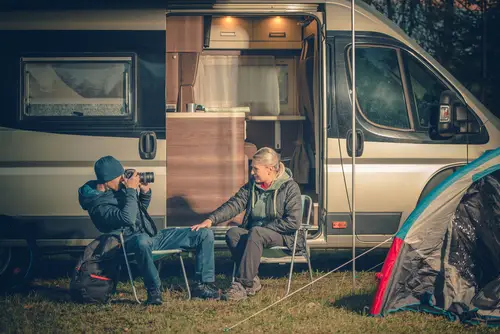
Parking in a quiet neighborhood might seem safe, but it often comes with strict local ordinances. Many cities have residential parking rules or overnight bans that can result in fines or towing. Some neighborhoods even have active HOA patrols monitoring oversized vehicles. What feels discreet can quickly turn into a headache for RV owners.
Besides the legal issues, you might face unwelcome neighbors. Driveways and narrow streets can make maneuvering tricky. Noise complaints or blocked traffic can escalate quickly. And there’s rarely any access to water or dumping stations, so it’s not practical for more than a night.
5. National Forest Roads
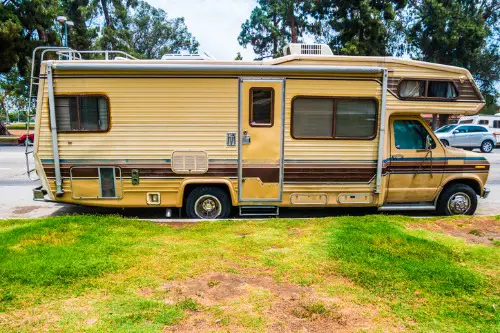
National forests seem ideal for off-the-grid RV adventures, but there’s a catch. Some areas have strict limits on dispersed camping, and rangers regularly patrol popular roads. Lack of clear signage can make it easy to unknowingly break rules. Violations can come with hefty fines and forced relocation.
Even where it’s allowed, conditions can be rough. Dirt or gravel roads can be tricky for large rigs. Limited facilities mean no showers, water, or bathrooms. Wildlife encounters and extreme weather add another layer of unpredictability.
6. Highway Shoulders

It might feel like a quick solution to pull off the shoulder, especially during long hauls. But parking on a highway shoulder is generally illegal and extremely dangerous. High-speed traffic makes it a safety nightmare. Law enforcement won’t hesitate to issue citations or ask you to move.
Shoulders aren’t designed for extended stays. They lack amenities, are often noisy, and can become a target for theft. Even short naps can turn into unsafe situations. The risk almost always outweighs the convenience.
7. Casino Parking Lots

Casinos sometimes promote overnight RV parking to attract travelers, but not all locations honor that policy. Rules can vary by state, and some lots have strict time limits. Security can enforce towing if you overstay or park in the wrong area. What seems like a free benefit can quickly become a source of stress.
Even if permitted, casino lots come with their own downsides. Noise from nightlife and security patrols can interrupt sleep. Lighting is often bright and constant, making it hard to rest. Amenities like water and waste disposal are rarely available for RVs.
8. Industrial Parks

Industrial parks appear empty after hours, offering seemingly open space. However, these areas are often off-limits to overnight parking. Security cameras and patrols are common, and fines or towing are a real possibility. Entering with an RV can feel sneaky but comes with real consequences.
Even when enforcement is lax, industrial areas are far from convenient. There’s usually no access to water, bathrooms, or trash disposal. Trucks and machinery can create safety hazards. Noise from occasional activity can also disturb sleep.
9. Shopping Mall Lots
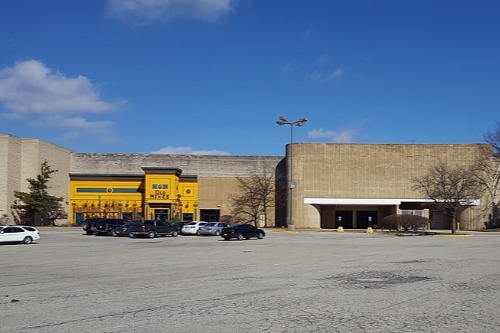
Shopping malls might seem like a safe bet due to large parking areas. Yet most malls prohibit overnight stays, and signs are often posted to enforce this. Security will usually monitor large vehicles after hours. Getting caught can result in towing and an expensive fine.
Even if the lot is technically accessible, the environment is not RV-friendly. There’s limited privacy and no facilities for waste or water. Lighting and noise from nearby highways or stores can be disruptive. Maneuvering a large RV around parked cars can also be stressful.
10. Airport Parking Lots

Some travelers assume airport lots are perfect for overnight RV stays. In reality, airports are high-security zones with strict enforcement. Parking overnight without authorization can result in immediate towing. Even short-term violations are heavily fined.
Facilities at airport lots are minimal at best. Most don’t provide water, dumping stations, or hookups. The constant noise from planes can make sleeping nearly impossible. Security patrols are frequent, leaving little room for discretion.
11. Public Parks
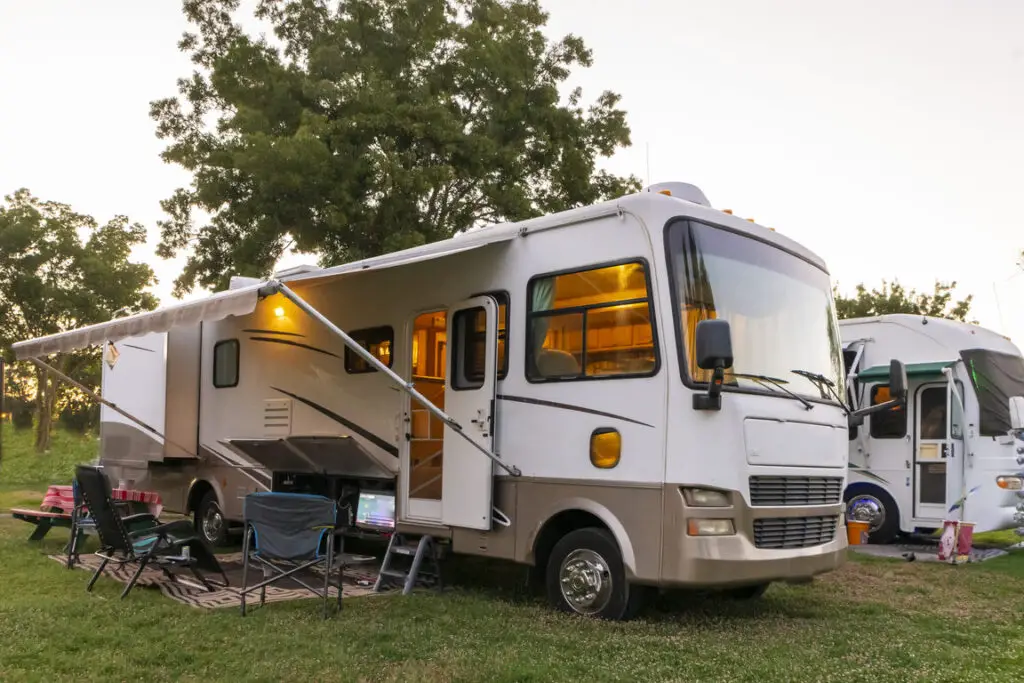
Public parks are tempting due to natural scenery and open space. However, most have clear rules limiting overnight stays to designated campgrounds. Ignoring those rules can lead to fines or forced removal. Enforcement is usually stricter in urban or popular areas.
Even when legal, parks often lack RV-specific infrastructure. Narrow access roads and low-hanging branches can be hazardous. Facilities like water, power, and dumping stations are rare. Wildlife and unpredictable weather add extra challenges.
12. Side Streets Near Truck Stops
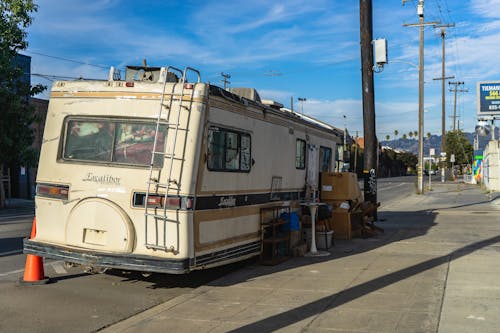
Parking near truck stops on side streets might feel like a clever workaround. But these areas are often monitored by local ordinances or towing companies. Trucks and traffic flow can make the streets dangerous for maneuvering large rigs. Law enforcement patrols can appear unexpectedly, adding stress.
Additionally, these streets rarely offer any RV-friendly amenities. No water, dumping, or waste disposal facilities are available. Noise from nearby trucks and traffic is nearly constant. What seems convenient can quickly turn into a restless and risky night.
13. Beachfront Parking
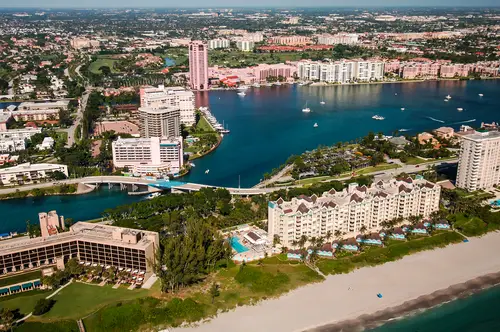
Many RV owners dream of pulling right up to the sand, but beachfront parking is often heavily regulated. Coastal towns usually ban overnight stays outside of designated campgrounds. Violating these rules can lead to steep fines, and enforcement is especially strict in tourist-heavy areas. Even if you avoid tickets, tides and weather can create unexpected risks.
Aside from legal issues, beachfront parking comes with practical drawbacks. Sand can make maneuvering and parking a heavy rig nearly impossible. Salt air can cause faster wear and tear on metal and paint. Add in the constant noise of waves and beachgoers, and it rarely makes for a peaceful night.
14. Abandoned Lots

Empty lots look inviting for RV parking, especially when they appear unused. However, property owners or city officials often keep a close eye on them. Trespassing laws usually apply, and being caught can lead to fines or towing. What seems like a free option can quickly turn into a legal headache.
On top of that, abandoned areas may not be as empty as they look. They can attract unwanted activity after dark, making them unsafe. Uneven ground or hidden debris can also damage your rig. Lack of lighting and amenities only makes the stay more stressful.
15. Fairgrounds Off-Season
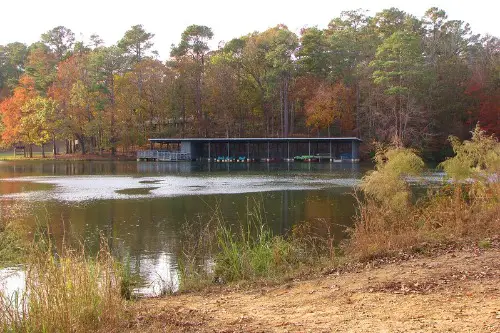
Fairgrounds appear perfect for RVs due to their large open spaces. But outside of event days, most grounds are private or city-owned and off-limits. Security or maintenance crews may monitor the property and ask you to leave immediately. Parking there without permission risks fines or a tow.
Even if you manage to stay unnoticed, conditions aren’t ideal. The lots are often gravel or dirt, making leveling difficult. Facilities like bathrooms or hookups are usually locked during the off-season. Noise from nearby roads or maintenance work can interrupt rest.
16. Marina Parking Lots
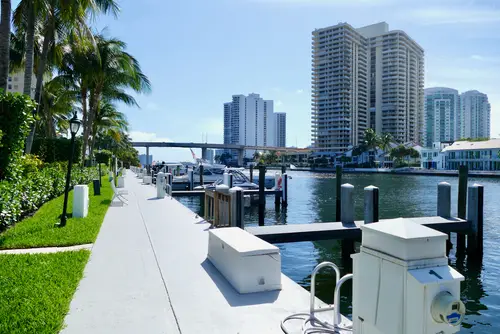
Marinas sometimes have wide-open lots that seem perfect for overnight RV stays. Unfortunately, most are private property reserved for boaters. Unauthorized overnight parking is often prohibited, and security patrols regularly sweep the area. Getting caught can result in tickets or being asked to leave in the middle of the night.
Even when allowed, marina lots come with challenges. They’re often crowded with vehicles and trailers, making maneuvering difficult. Constant activity around the docks can disrupt rest. Plus, salty air and seagull mess add unexpected maintenance issues for your RV.
17. Vacant Storefronts
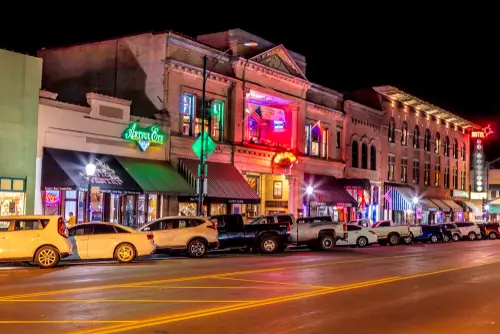
When a big-box store shuts down, its empty parking lot can look like a safe overnight spot. But most of these properties remain privately owned, and overnight stays are rarely permitted. Owners or local authorities often enforce no-parking rules, leading to fines or towing. What looks like a forgotten space is usually monitored.
Safety is another major concern. Empty buildings attract loitering and occasional vandalism. Lighting may be inconsistent, leaving parts of the lot unsafe. And without access to utilities, it’s just another uncomfortable night with added risks.
18. City Park Streets
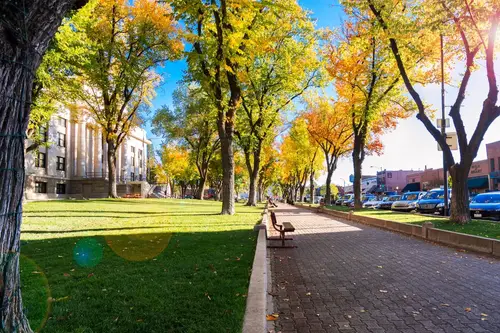
The roads surrounding city parks may look like convenient overnight parking. However, local ordinances usually ban overnight RV stays in these areas. Law enforcement patrols often pass by, making it risky to settle in for the night. Getting woken up and told to move is a common outcome.
Beyond legality, the location has its drawbacks. Street parking around parks is often limited and narrow, making maneuvering stressful. Noise from traffic and park visitors can continue late into the evening. Facilities like water and dumping stations are rarely nearby, making it inconvenient.
19. Behind Shopping Plazas
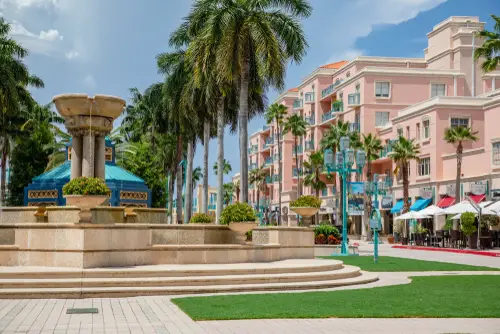
The back lots of strip malls or shopping centers may seem tucked away and safe. But these areas are typically for deliveries and staff, not overnight stays. Security cameras and patrols often catch RVs trying to park there. The result is usually a knock on the door or an expensive tow.
Even if you go unnoticed, the environment is far from pleasant. Delivery trucks can show up unexpectedly in the early morning. Dimly lit corners can feel unsafe, especially at night. Trash bins and odors from dumpsters don’t make for a restful atmosphere.
20. City Street Metered Parking
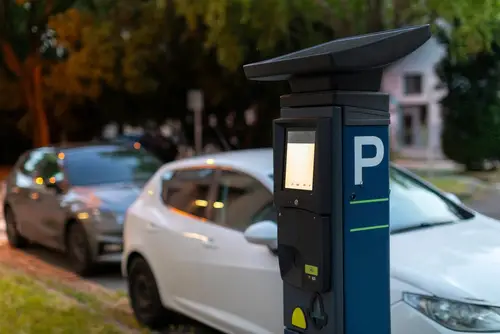
Metered parking spots downtown might appear to be a quick solution for an overnight stay. However, most cities strictly regulate these spaces and prohibit overnight use. Failing to move by the posted times can result in heavy fines or towing. City traffic officers rarely overlook large RVs taking up multiple meters.
Even aside from the risk of fines, downtown metered spots are impractical. Streets are noisy, bright, and often crowded, making rest difficult. The lack of privacy and constant foot traffic adds stress. With no hookups or access to water, it’s an uncomfortable and expensive mistake.
This post 20 Overnight Parking Choices That Backfire for RV Owners Every Time was first published on Greenhouse Black.
